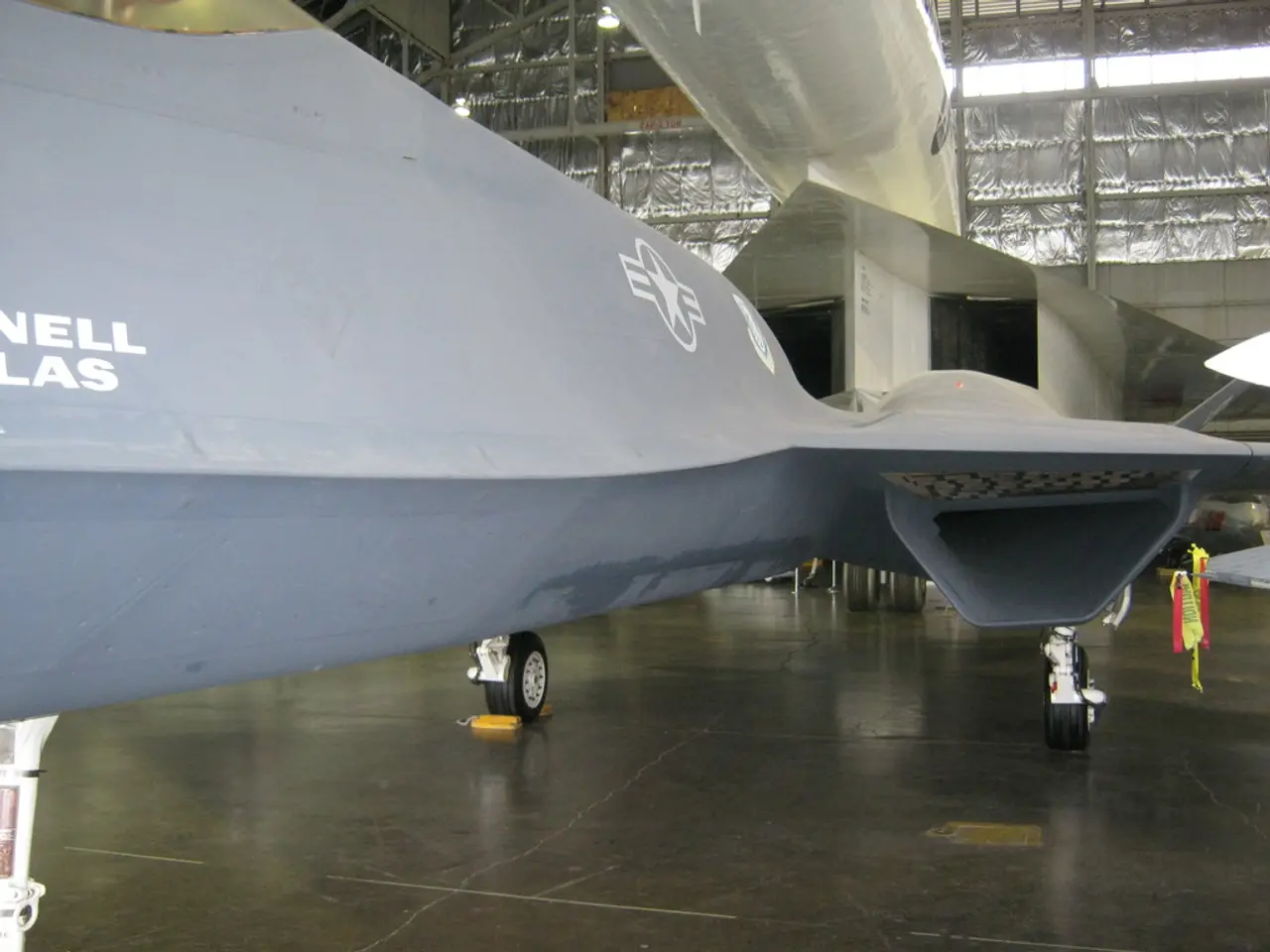Boeing's Financial Prospects: Will the Aerospace Provider See Renewal or Continued Decline?
In the ever-evolving world of aviation, Boeing, one of the industry's giants, is poised for a gradual recovery in 2025 and beyond. Despite facing numerous challenges, the company is making strides towards stability.
The U.S. government's Air Force One aircraft program delay until 2029 or later has undoubtedly impacted investor sentiment towards Boeing. However, the company's ability to secure new deals with the U.S. government and international defense clients could serve as a potential source of financial stability.
Investors will closely monitor upcoming earnings reports to evaluate Boeing's financial performance and management strategies. The company's order backlog, valued at $428 billion, suggests robust future revenue streams, assuming the company can resolve its supply chain and production issues.
Boeing's future stock performance is expected to show modest gains, driven by improving production, financial metrics, and strong demand for commercial aircraft. Analysts generally have a "Strong Buy" to "Moderate Buy" consensus with price targets ranging from around $228 to $250 per share, reflecting potential upside but also some caution.
Key factors influencing Boeing's potential comeback include production recovery and aircraft deliveries, financial health and earnings, valuation and market sentiment, and risks.
Production Recovery and Aircraft Deliveries: Boeing is progressing toward its 2025 delivery goals, with around 400 units of 737 MAX and 80 units of 787 jets expected to be delivered. Improvements in assembly line stability and efficiency are crucial for increasing output. Meeting or exceeding delivery targets will drive revenue and improve investor confidence.
Financial Health and Earnings: Analysts note improving EBITDA, cash flows, and operating profits, especially from the services and defense segments. The company's earnings turnaround is underway, supported by solid services business contributions and small operating profits in defense.
Valuation and Market Sentiment: Boeing's P/E ratio remains relatively high, indicating investor cautious optimism. Analyst price targets average around $232 to $250, with many recommending strong buys. Recent upgrades by firms like Citigroup and Barclays contribute to positive market sentiment.
Risks: Ongoing supply chain disruptions, geopolitical tensions affecting defense contracts, and production challenges could hamper growth. Additionally, some analysts note EPS misses that warrant caution.
Boeing has faced increasing scrutiny over quality control, resulting in multiple aircraft delivery delays. To stabilize its cash flow, Boeing announced a $19 billion share sale and plans to eliminate 17,000 positions.
As of February 2025, Boeing is trading at $185.56 per share. The potential impact of Southwest Airlines' layoffs on customer service and flight schedules remains to be seen. TD Cowen analyst Gautam Khanna raised his price target for Boeing stock to $200, citing the company's strong order backlog of 5,400 planes valued at $428 billion.
Investors should weigh these factors and consider the broad consensus of analyst optimism tempered by existing challenges. Boeing appears positioned for a slow but steady recovery driven by delivery ramp-ups, operational improvements, and demand for commercial and defense aircraft, though external risks and internal production hurdles require monitoring.
- Boeing's recovery in 2025 and beyond, despite challenges, could be aided by its progress in the aviation industry, particularly in the management of logistics and supply chain for delivery of its commercial and defense aircraft.
- The company's focus on improving aviation management and production efficiency is crucial, as it aims to deliver around 400 units of 737 MAX and 80 units of 787 jets by 2025, boosting revenue and investor confidence.
- The positive market sentiment for Boeing is influenced by its robust financial performance, with key factors being the earnings turnaround, valuation, and strong demand in the aerospace and defense markets.
- In Africa, Boeing's potential growth might be linked to the development and management of ports, ensuring efficient delivery and import of aircraft parts and materials, further strengthening its supply chain and production capabilities.
- Boeing's financial health, reflected in its order backlog valued at $428 billion, could attract investments from foreign markets, particularly in the emerging aviation industries of Asia and Africa.
- The success of Boeing's strategy heavily depends on managing risks, such as ongoing supply chain disruptions, geopolitical tensions affecting defense contracts, and production challenges, while maintaining quality control and ensuring timely deliveries to customers.








